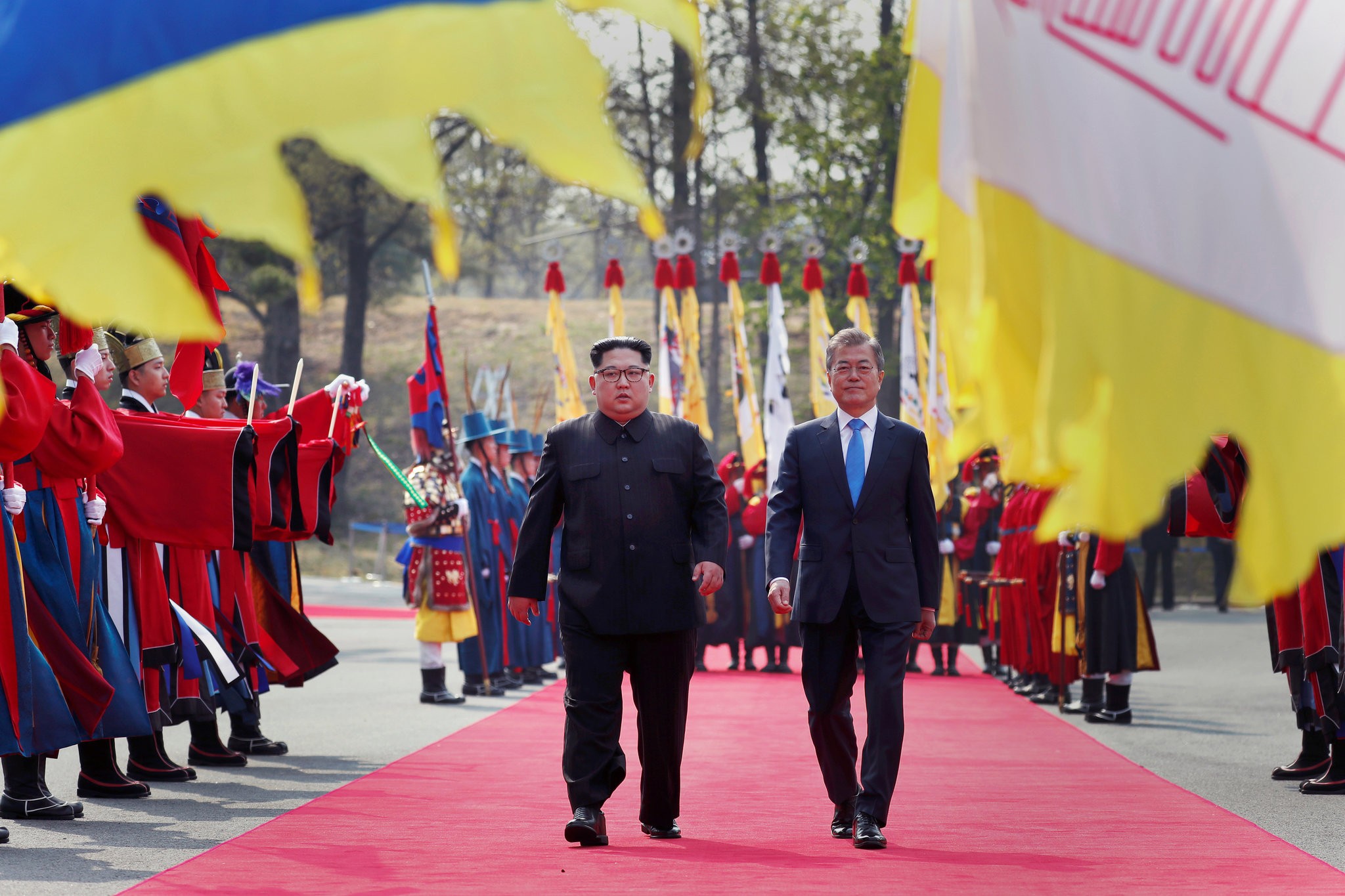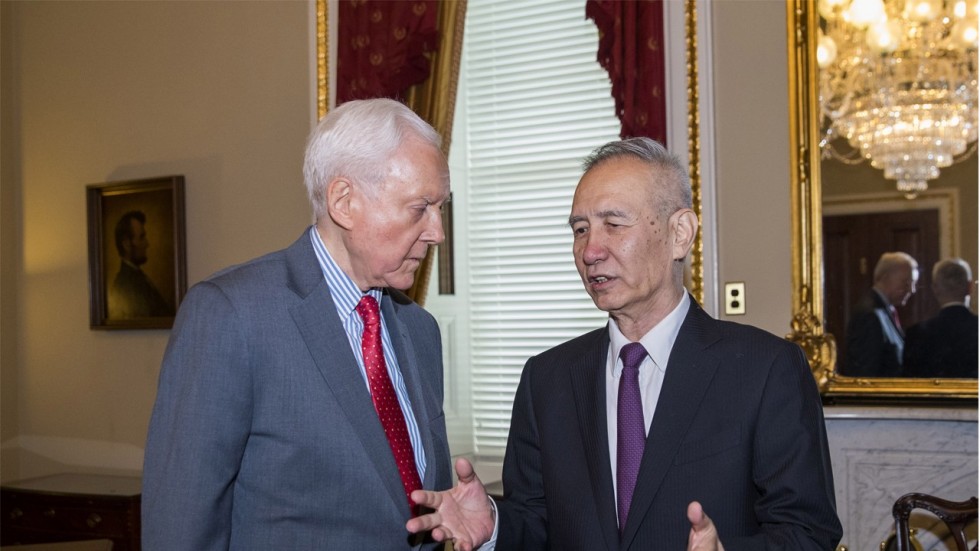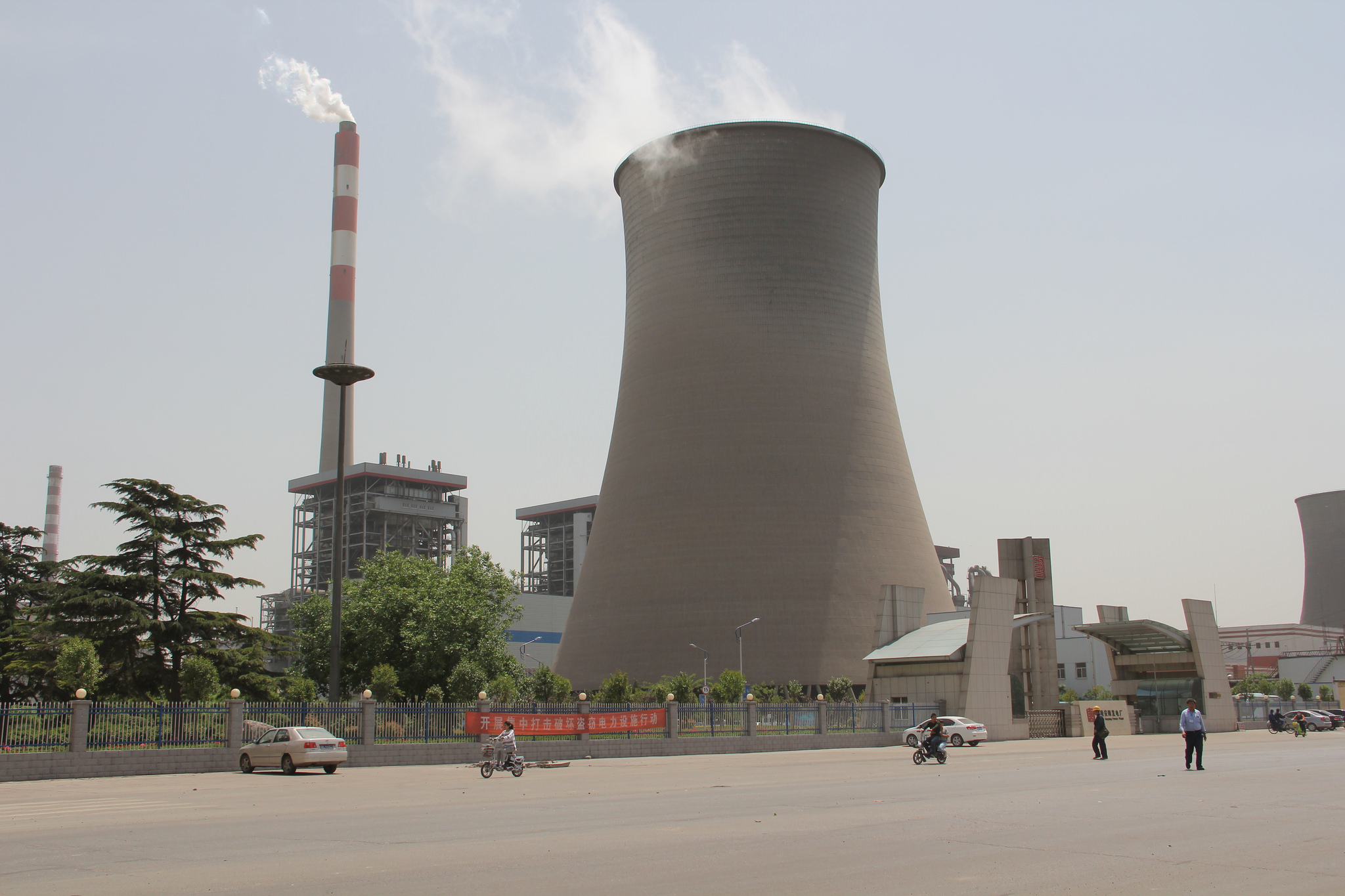
 The On/Off Trump-Kim Summit
The On/Off Trump-Kim SummitNorth Korea threw into doubt the planned June 12 summit between President Trump and Kim Jong Un on Wednesday, accusing the U.S. of a lack of sincerity towards negotiation. Kim Kye Gwan, the first vice-minister of foreign affairs, released a statement saying that North Korea rejected the U.S.' attempt to "force our unilateral nuclear abandonment" and would not comply with the concept of "abandoning nuclear weapons first, compensating afterwards."
The statement also criticized the U.S. national security advisor, John Bolton, who recently suggested that talks with North Korea could emulate the 2003 negotiations with Libya. "It is absolutely absurd to dare compare the DPRK, a nuclear weapon state, to Libya which had been at the initial state of nuclear development," Kim said in the statement. "We shed light on the quality of Bolton already in the past."
North Korea also cancelled its talks with South Korea, which were due to take place in Panmunjom on Wednesday, in protest over the ongoing South Korea-U.S. joint military drills. North Korean reunification negotiator Ri Son Gwon called the South Korean government "ignorant and incompetent" for participating in these exercises. Despite this, South Korean officials expressed their hope that further negotiations would go ahead. "We believe the current situation is. . .a pain we must endure to get good results," the press secretary for South Korean President Moon Jae-in said.
Chinese Foreign Minister Wang Yi urged the U.S. to respond calmly to North Korea's threats to cancel the summit. "Measures that North Korea has taken to ease tension on the Korean peninsula should be acknowledged," Wang said. "The current eased situation on the peninsula issue has been hard won."
 The Chinese Delegation Descends on Washington
The Chinese Delegation Descends on WashingtonChinese Vice Premier Liu He arrived in the U.S. on Tuesday for further negotiations with American trade officials; his second trip to Washington in three months. He was accompanied by a hefty delegation of Chinese officials from various branches of government, including the Governor of the People's Bank of China Yi Gang and the Vice Minister of Commerce Wang Shouwen. Liao Min, who is considered a rising star in economic policymaking and is Liu He's new deputy at the Office of the Central Commission for Financial and Economic Affairs, also joined the vice premier.
As The Diplomat notes, Luo Wen and Han Jun, who represent the agriculture and information technology ministries, joined the delegation in "an obvious attempt by Beijing to make some breakthroughs" with the U.S. in these areas. Agriculture is a top priority for President Trump, whose voting base is concerned that reciprocal Chinese tariffs on American agricultural goods could lead to job losses in states that export large amounts of produce, like soybeans and pork, to China. Technology is also likely to be an important topic. President Trump tweeted on Sunday that he was working with President Xi Jinping to renegotiate ZTE's ban on buying U.S. technology.
Talks between the two sides are set to take place on Thursday and Friday and will include the U.S. officials who recently travelled to Beijing, including Treasury Secretary Steven Mnuchin, who will lead the discussions. The pressure to come to an agreement will be high. Next week, public hearings will take place on the U.S. tariffs on $50 billion worth of Chinese imports, which may come into force by May 22 if the deadline is not extended.
 Gap Walks Back Controversial Design
Gap Walks Back Controversial DesignThis week, the U.S. clothing retailer Gap became the latest company to apologize for the way it referred to Taiwan. On Monday, Gap said in a post on the social media platform Weibo that it had made an "unintentional mistake" in the design of one of its T-shirts, which included a map of China that did not include Taiwan. Copies of the T-shirt, which sparked hundreds of complaints by Weibo users, were recalled and destroyed in China.
Earlier this month, tensions between Washington and Beijing over Taiwan became heated as the U.S. accused the Chinese government of seeking to "impose Chinese political correctness on American companies and citizens." The White House statement referenced a letter by the Chinese Civil Aviation Administration which demanded airlines change websites and materials which had referred to Taiwan, Hong Kong and Macao as separate countries. A number of airlines, including British Airways, Air Canada and Malaysia Airlines, have already changed their websites, settling on slight variations of "Taiwan - China."
"No matter what the U.S. side says, nothing will alter the objective fact that there is only one China in the world, and that the Hong Kong, Macau and Taiwan regions are inseparable parts of Chinese territory," Chinese foreign ministry spokesperson Geng Shuang said on the ministry's website.
Taiwan has emerged as top issue in relations between the U.S. and China, especially after the passage in the U.S. of the Taiwan Travel Act. On Wednesday, a spokesperson for the Taiwan Affairs Office of the State Council said that military drills around Taiwan were a "strong warning to Taiwan independence separatist forces" that China would defend its "national sovereignty and territorial integrity."
 This Week's Top Commentary
This Week's Top Commentary"Contemporary discourse around climate change, energy consumption and geopolitics typically depicts China either as a 21st century redeemer or as an inevitable tragedy. Both of these narratives tend towards the extreme," argued Mikaila Smith in an article for China-US Focus this week. As Chinese policy will play a key role in shaping the future energy market, a more nuanced view of China's current energy consumption trends is needed. In this piece, Smith puts China's green energy goals into context and reflects on the possible outcomes of President Xi's initiatives on coal and renewable energy. Read the article here.
Prepared by China-US Focus editorial teams in Hong Kong and New York, this weekly newsletter offers you snap shots of latest trends and developments emerging from China every week, while adding a dose of historical perspective.
- 2018-05-11 American Goods Are Stuck at Chinese Ports
- 2018-05-04 China and the U.S. Lay Trade Demands on the Table
- 2018-04-27 U.S. Delegation Will Visit China Next Week
- 2018-04-20 China and the U.S. Seek Allies in Trade Dispute
- 2018-04-13 President Xi Reviews the PLA Navy
- 2018-04-06 China and Russia Pledge Military Cooperation in a Signal to the United States
- 2018-03-30 Kim Jong Un Visits Beijing on First Overseas Visit
- 2018-03-23 President Trump Asks for Tariffs on Around $50 Billion Worth of Chinese Imports
- 2018-03-16 Tillerson to be Replaced by Mike Pompeo as Secretary of State
- 2018-03-09 President Trump Agrees to Meet Kim Jong-Un
- 2018-03-02 U.S. Imposes Tariffs on Chinese Aluminum
- 2018-02-23 A Week of Developments Related to North Korea
- 2018-02-16 Cui Tiankai says U.S. Should Not Advocate Confrontational Strategy Towards China
- 2018-02-09 China Releases the “No.1 Central Document” Containing New Rural Policies
- 2018-02-02 Wang Qishan Appointed to the National Legislature
- 2018-01-26 New Edition of the Focus Digest
- 2018-01-19 South Korea and North Korea to Compete Together at the Winter Olympics
- 2018-01-12 U.S. House of Representatives Passes Taiwan Bills
- 2018-01-05 U.S. Rejects Sale of Moneygram to China’s Ant Financial
- 2017-12-22 Trump’s National Security Strategy Labels China a “Revisionist Power”
